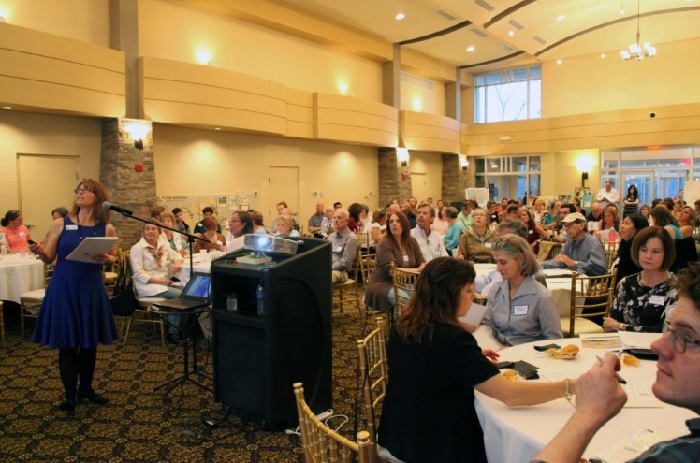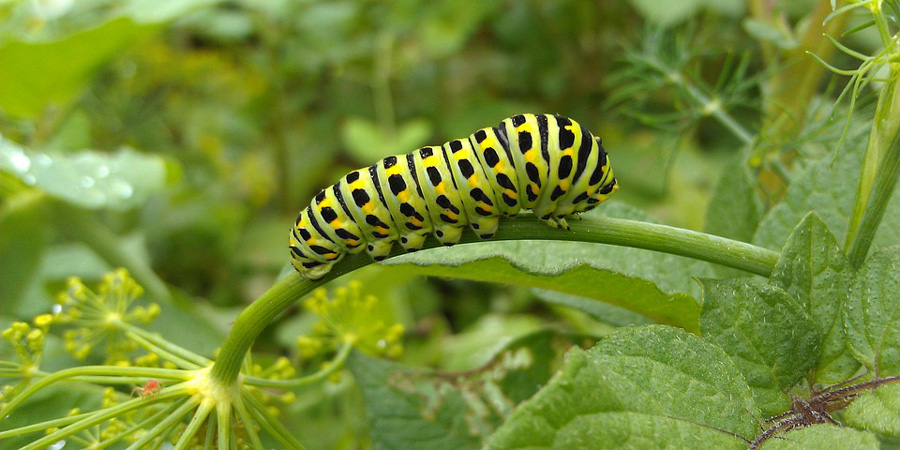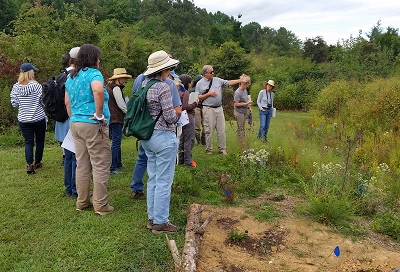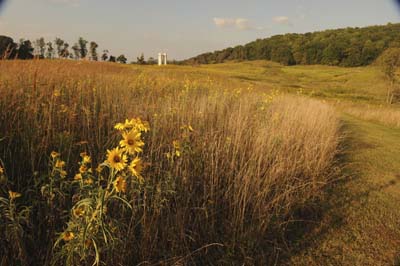In June 2012, PEC received a grant from The Volgenau Foundation to improve wildlife habitat in the northwestern region of Fauquier County. This project area is geographically defined by the Thumb Run watershed; all water in the region drains into Thumb Run and eventually the Rappahannock River. Wildlife habitat improvement goals for this project align with state priority wildlife species including: early successional song birds, pollinators, fresh water aquatic species such as mussels, amphibians, and more. Improving the connectivity of habitat “corridors” such as riparian buffers is a key focus of the project. Habitat practices that have other environmental benefits such as improved water quality are also of high priority. Get involved!
Restoring Wildlife Habitat
Whether you live in urban, suburban or rural areas, you can make a positive impact on surrounding fish and wildlife populations. Our web resources are intended to give you the tools to manage your Piedmont lands and waters for greater biodiversity, productivity, and environmental quality.
Opportunity to Help with Ailanthus Control
The following message went out by email from Rod Walker of Blue Ridge PRISM. As a stakeholder, PEC wanted to help spread the word:
To landowners in Virginia’s Piedmont and Mountain Region,
The Blue Ridge PRISM [Partnership for Regional Invasive Species Management] has recently been made aware of an exciting experiment on biocontrol methods for Ailanthus. The success of the experiment depends on landowner participation. Below is more information about the experiment. If you are a landowner interested in providing a site for their work, please contact Rachel Brooks, [email protected].

Lessons Learned & Presentations from the 2016 Loudoun HOA Forum
On the evening of March 10, 2016 more than 150 individuals attended a forum in eastern Loudoun focused on improving landscaping practices for stream health, water quality and the environment. Hosted by The Piedmont Environmental Council in partnership with Loudoun County, Common Space for the Greater Good presented solutions for Home Owners Associations and residents to restore streams, reduce pollution and attract birds, bees and butterflies – and provided real-life examples that have been adopted by many communities in Loudoun and elsewhere.

Larval Host Plants of Selected Lepidoptera (e.g. Butterflies, Moths, Skippers) in Virginia
This list of larval host plants for common Virginia butterfly species was compiled by Bob Glennon and David Bryan, NRCS Private Lands Biologists, and Celia Vuocolo, PEC’s Habitat and Stewardship Specialist:
Trees Planted, Smiling Faces
In partnership with Sugarland Run HOA, the Broadlands HOA, the Red Cedar HOA and Loudoun County Government, we’ve finished planting 3.26+ acres, 968 native trees and shrubs, in three Loudoun Communities.
Thank you to our wonderful volunteers and involved communities for helping Loudoun streams, our local environment and the Chesapeake Bay! Thanks also to grants from The National Fish and Wildlife Foundation and Fairfax Water, and generous in-kind support by Heritage Landscape Services, LLC and Premier Turf and Landscaping.

A Quest for Wildlife Habitat Restoration at Home
When you first visit Bruce Jones’ property, you’re apt to get overwhelmed. Everywhere you turn, something is fluttering, flowers are blooming, and life is happening. “Once you get it in your blood,” Bruce says, “it’s hard to switch to TV.”
Go Native Go Local
This guide provides the residents of the Virginia Piedmont with a listing of businesses, most of them local, that offer products and services that promote our native biodiversity! Go Native Go Local aims to strengthen the local economy and is a sister publication to our Buy Fresh Buy Local guide. If you use this guide, please let the businesses know that The Piedmont Environmental Council sent you!
Sugarland Run Tree Planting — Spring 2015
On Saturday, April 25th, the Sugarland Run community planted over 160 native trees and shrubs to help reduce air and water pollution in Sterling and add beneficial habitat. Over 80 people turned out to get a little dirty and work together for the environment and enjoy a feeling of accomplishment.
Floating Island Installation at Broadlands
Working together for cleaner water. Volunteers planted three floating islands that will filter nutrient runoff from a Broadlands stormwater pond. Loudoun County Government stormwater staff launched the islands with weights and needed protection from geese until the plants mature. The protection and weights will then be removed.
The Piedmont Environmental Council collaborated with Broadlands Naturally (through the habitat committee of the Broadlands HOA) and Loudoun County, supported by grants from National Fish and Wildlife Foundation and Fairfax Water. Thanks to all who made it possible!
Black Bear Primer
A nationwide decline in hunting, combined with hunting restrictions in heavily populated areas has helped to increase black bear populations.

